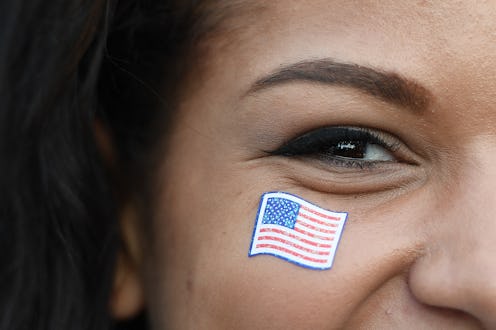News
What The Electors Actually Do
We have almost reached Election Day 2016, which promises to be one of the most monumental and important presidential elections ever. But many people might need to brush up some on U.S. History 101, since the U.S. voting process can be a bit confusing. While the American people do vote for the president on Election Day, it is technically the electors in each state who decide the actual outcome of the election. So what do the electors actually do?
The job of electors is very important, as they decide who will be the next president and vice president of the United States. The electors (except in the rarest of cases) vote for their party's candidate, whom they had been pledged to in the months leading up to Election Day.
Surprisingly, there is not a big set of requirements to become an elector, except that they must not be a member of Congress, a high-ranking U.S. official, or someone who has rebelled against the United States — because, you know, that'd be pretty bad.
Electors are chosen in the months before Election Day by their political parties through their conventions and primaries, and there are 538 electors in total from all the states and D.C. These people are usually heavily involved in their party, and have shown a great loyalty to their party nominee — which is needed to prevent what is known as a "faithless elector," but more on that later.
After a party has their slate of electors, the general public votes on Election Day (this year, on Nov. 8, 2016), each state's popular vote is determined, and the winner gets the votes of the electors from that state. A majority of the states are "winner take all," meaning that if a candidate wins the popular vote, all of their electors go to that candidate — the only exceptions being Nebraska and Maine, where electors can be split amongst the candidates. As a reminder, a candidate must win 270 electoral votes to win the presidency.
Once the initial popular vote is in, under federal law, the electors meet up at their state capital on the first Monday after the second Wednesday in December (this year: Dec. 19, 2016). It is there that the electors cast their votes, which are then sent to Washington by Dec. 28.
According to the Constitution, there is no provision or federal law which requires electors to vote for their party's candidate, but some states do have fines for "faithless electors." That said, faithless electors are extremely rare, considering these are well-known and regarded individuals in their parties. Once in Washington, Congress convenes on Jan. 6 for the official Electoral College vote count, and if there are no objections, the election is certified and finished.
From those early days of the primaries, each elector is an integral part in getting the next president into the White House, so it is important that each citizen practices their right to vote, so the electors aligned with their party are the ones who end up casting votes.
